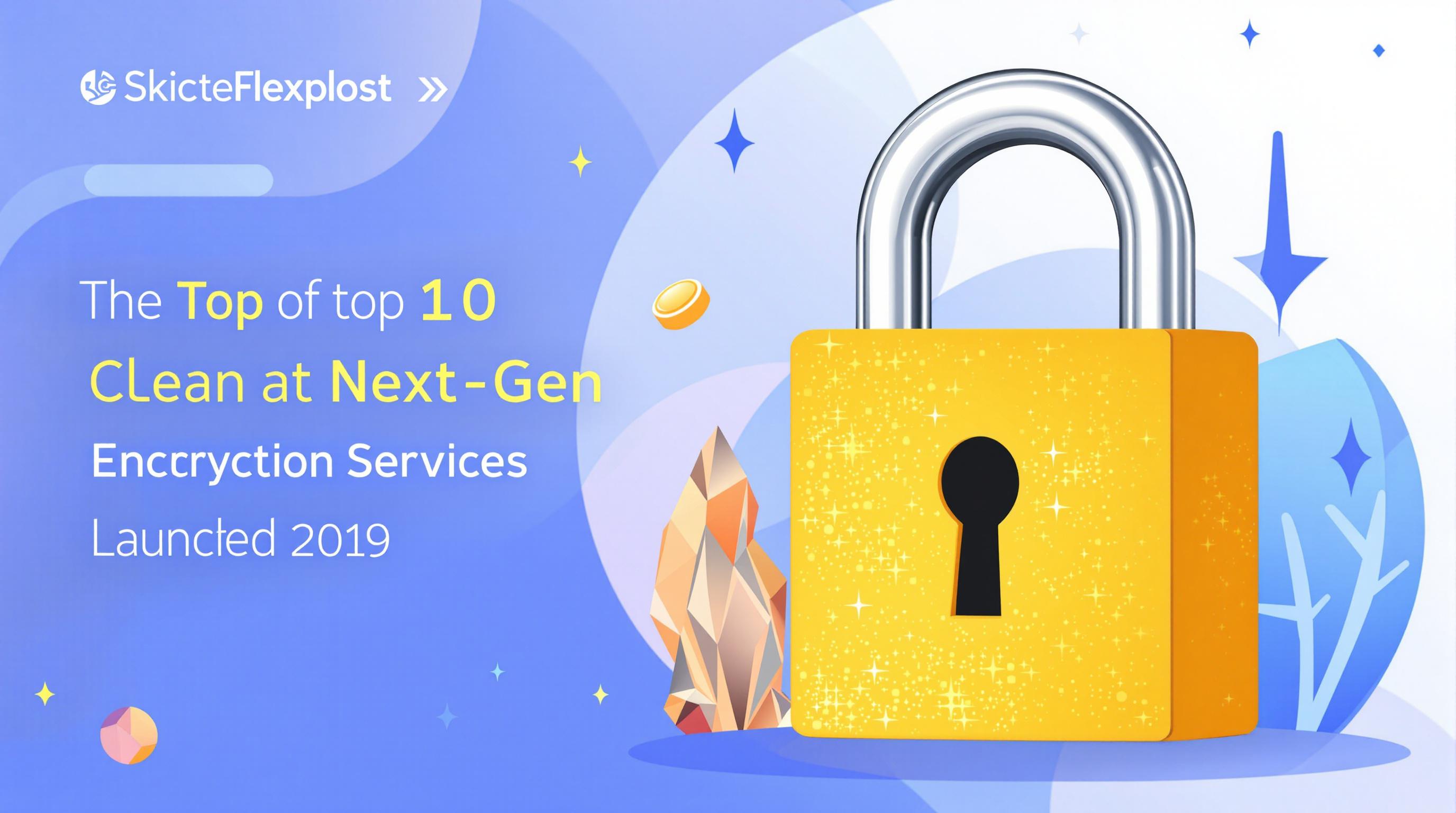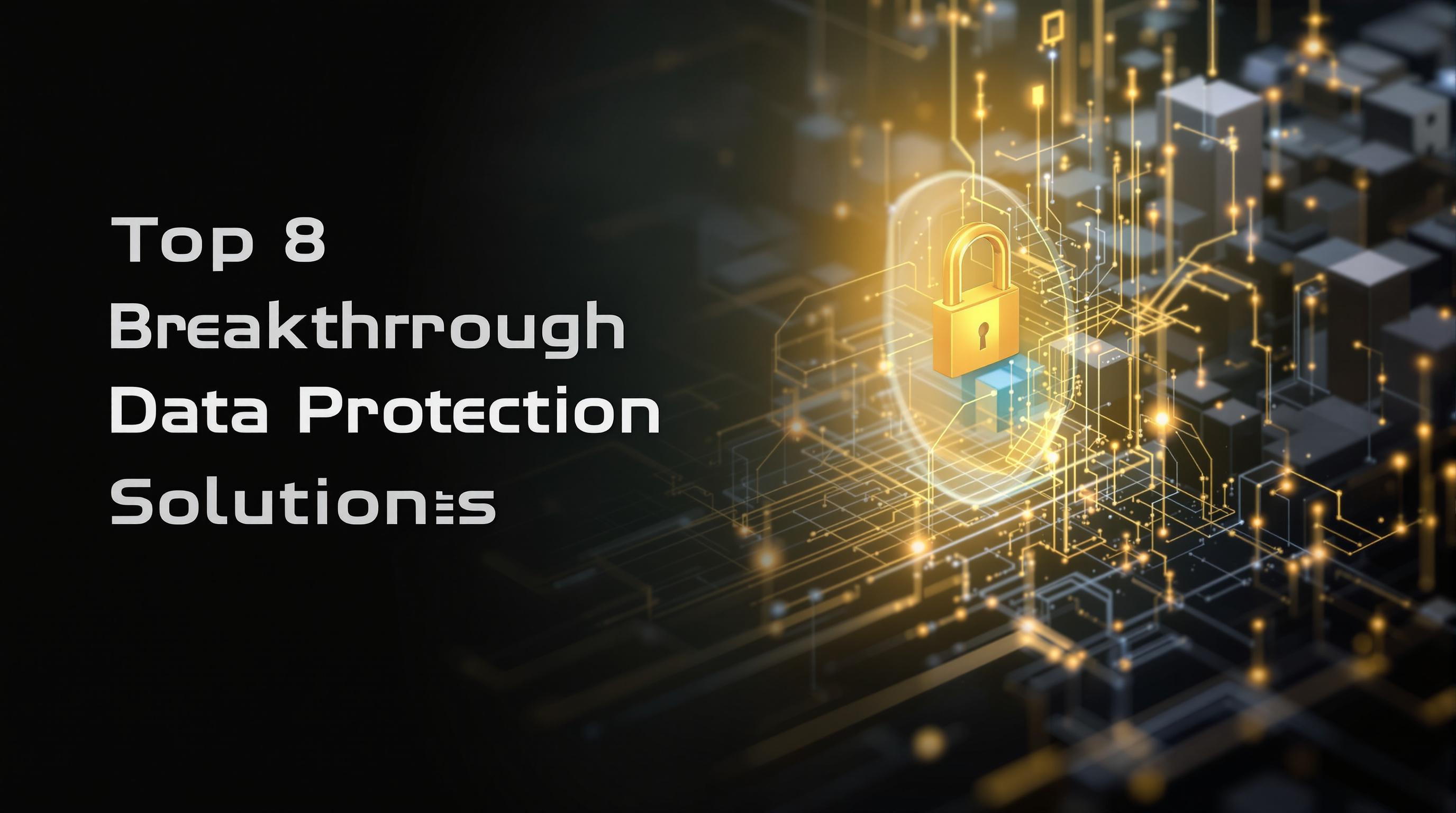Related Articles
- 7 Game-Changing Encrypted Messaging Apps Released Since 2019 That Redefine User Control
- Exploring Quantum Entanglement as a Future Layer of Protection for Connected Devices in Decentralized Networks
- Top 7 Privacy-Focused Cloud Backup Services Released Since 2019 That Redefine Data Control
- Exploring Psychological Barriers That Prevent Wider Adaptation of Dual Verification in Everyday Tech Use
- Top 6 Privacy-Focused Browsers from the Last Five Years That Outpace Giants in Speed and Security
- 6 Lesser-Known Identity Protection Gadgets From the Last Five Years That Actually Outperform Popular Brands
Top 10 Next-Gen Encryption Services Launched Since 2019: In-Depth Reviews and Ranking for Ultimate Data Control
Top 10 Next-Gen Encryption Services Launched Since 2019: In-Depth Reviews and Ranking for Ultimate Data Control
Top 10 Next-Gen Encryption Services Launched Since 2019: In-Depth Reviews and Ranking for Ultimate Data Control
In today's digital landscape, data security has become more critical than ever. As cyber threats evolve, companies and individuals alike seek encryption services that offer robust protection coupled with usability. Since 2019, several next-generation encryption platforms have emerged, each promising enhanced data control, privacy, and compliance with global standards. This article explores the top 10 next-gen encryption services launched since 2019, providing insightful reviews and rankings to help you find the ideal solution for ultimate data control.
We focus on evaluating these services based on encryption strength, usability, scalability, and innovative features such as post-quantum cryptography and zero-knowledge architecture. Our in-depth reviews provide technical details alongside practical considerations, ensuring readers can make well-informed decisions regarding their data security needs.
Whether you are a business looking to secure sensitive corporate information or an individual seeking privacy for personal data, this article guides you through the leading encryption platforms that have set new standards in the industry in the past five years.
1. Virtru Data Protection Platform
Launched in its next-gen iteration in 2019, Virtru focuses heavily on easy-to-use email encryption and data protection across various cloud providers. What sets Virtru apart is its seamless integration with popular systems like Google Workspace and Microsoft 365, allowing users to encrypt data without disrupting workflow.
The platform employs client-side encryption and a robust access control system based on attribute-based encryption (ABE). This means data remains protected even when stored in the cloud, as the keys never leave the user’s device. Virtru’s end-to-end encryption with persistent control and revocation capabilities gives users real-time oversight of their shared data.
Virtru has earned trust in regulated industries such as healthcare and finance, where compliance with HIPAA and GDPR is critical. Its transparent key management and ability to track data use make it an excellent fit for organizations requiring stringent data governance. (Source: Virtru Official)
2. CipherTrust Cloud Key Manager by Thales
Thales introduced the CipherTrust Cloud Key Manager to address the growing need for centralized key management across multi-cloud environments. Since its launch in 2019, it has been vital for enterprises looking to enforce consistent encryption policies regardless of where data resides.
The service supports bring-your-own-key (BYOK) models, integrates with major cloud providers, and provides advanced policy enforcement tools. Its hardware security modules (HSMs) and FIPS 140-2 validation ensure the cryptographic operations maintain high security standards, critical for government and large-scale enterprises.
The management dashboard focuses on usability, providing detailed auditing and compliance reports. CipherTrust's ability to unify encryption key control across on-premises and cloud systems offers unprecedented operational simplicity and security assurance. (Source: Thales CipherTrust Cloud Key Manager)
3. Proton AG End-to-End Encrypted Suite
Proton AG, known for ProtonMail, expanded in 2020 with a full suite including Proton Drive and Proton VPN, all emphasizing zero-access end-to-end encryption. Their commitment to open-source cryptographic protocols enhances trust among privacy-conscious users globally.
Proton’s services leverage next-generation AES-256 and RSA-4096-bit encryption, augmented with perfect forward secrecy. This combination ensures data remains secure even if long-term keys are compromised. Importantly, the company is headquartered in Switzerland, under strong privacy laws that protect user data from extrajudicial access.
Its user-friendly approach targets both individuals and teams, balancing complex cryptography with simple interfaces. Proton AG's ecosystem approach offers a comprehensive privacy solution rather than disparate tools, promoting convenience without sacrificing security. (Source: Proton Security)
4. NordLocker by Nord Security
Released in late 2019, NordLocker is designed as a file encryption tool combining advanced cryptographic techniques with cloud synchronization. It uses a hybrid encryption system of AES-256 and RSA-4096 to secure user files before they ever leave the device.
NordLocker stands out by integrating easily with users’ existing workflows, syncing securely with cloud storage providers while maintaining zero-knowledge encryption principles. This ensures that even NordLocker’s servers cannot decrypt stored content, reinforcing data sovereignty for users.
Its intuitive drag-and-drop user interface and cross-platform support have made it popular among freelancers and businesses handling sensitive digital assets. NordLocker also incorporates password managers and secure file sharing to offer an all-around data control platform. (Source: NordLocker Official)
5. Tresorit Zero-Knowledge Cloud Storage
Tresorit, relaunched with new features in 2020, is synonymous with secure, zero-knowledge cloud storage. It provides encrypted file storage and sharing with granular permissions, underpinned by end-to-end encryption using AES-256 and elliptical curve cryptography.
Designed for businesses that demand high compliance standards (e.g., GDPR, HIPAA), Tresorit offers both scalable cloud storage and team collaboration tools. The platform’s zero-trust architecture prevents anyone other than authorized users from accessing data, even if servers are breached.
Tresorit also provides client-side encryption and automatic sync mechanisms, keeping data encrypted at rest and in transit. Its transparent security audits and certifications bolster corporate confidence. Overall, Tresorit is a premium solution for organizations valuing privacy-first file management. (Source: Tresorit Security Overview)
6. Boxcryptor by Secomba
Boxcryptor, a player since before 2019, released a significant next-gen update in 2020 aimed at seamless encryption of cloud file storage. It supports over 30 cloud providers and offers end-to-end encryption with zero knowledge of user keys.
Its hybrid encryption model combines AES-256 for file content and RSA-4096 for secure key sharing, ensuring strong protection without performance penalties. Boxcryptor also introduced new features enabling enterprise-grade key recovery and compliance management tailored for regulated sectors.
The platform targets enterprises with mixed cloud environments who need to securely collaborate without sacrificing convenience. Boxcryptor’s integration with existing cloud storage and team management tools makes it a versatile, advanced encryption option. (Source: Boxcryptor Security)
7. Opaque Labs’ Quantum-Resistant Encryption Service
Recognizing the future threats posed by quantum computers, Opaque Labs launched a next-gen encryption service in 2021 specifically tailored to be quantum-resistant. It leverages lattice-based cryptography, designed to withstand attacks from quantum algorithms.
This pioneering approach sets Opaque Labs apart by addressing a horizon concern today. Their service combines standard symmetric algorithms with novel post-quantum key exchanges, suitable for enterprise and government clients anticipating the quantum era.
Though still emerging, Opaque Labs emphasizes interoperability and flexibility, enabling clients to transition smoothly between classical and quantum-resistant schemes. Their work has been recognized in academic and governmental cryptography circles. (Source: Opaque Labs Quantum Security)
8. Cyphr Secure Messaging
Cyphr, launched as a next-generation end-to-end encrypted messaging service in 2019, focuses on privacy-centric communication for individuals and small organizations. Built on open protocols like Signal’s Double Ratchet algorithm, Cyphr ensures forward secrecy and message integrity.
The service eliminates any metadata leakage by minimizing data retention and anonymizing sender-recipient links. Cyphr also incorporates ephemeral messaging features, useful for sensitive communications that require automatic deletion.
Its cross-platform availability and minimal setup lower barriers to adoption while emphasizing security. Cyphr serves as an example of next-gen encryption tailored for interpersonal trust and secure collaboration. (Source: Cyphr Security)
9. FAIR Data’s Encrypted Data Fabric
FAIR Data introduced its encrypted data fabric product in 2022, targeting enterprises that manage distributed data ecosystems. The platform enables encryption and fine-grained access control across hybrid cloud and edge environments.
Utilizing privacy-enhancing technologies (PETs), FAIR Data integrates attribute-based encryption with dynamic policy enforcement. Their platform is built for scalability and compliance, supporting real-time re-encryption and key rotation without downtime.
FAIR Data’s innovation lies in integrating encryption with workflow management, making secure data sharing practical for complex organizational structures. Their offering is increasingly relevant as enterprise data becomes more distributed and regulated. (Source: FAIR Data Solutions)
10. Vaultree Confidential Computing and Encryption Platform
Vaultree launched its confidential computing and encryption platform in 2020 with a focus on enabling secure data processing without exposing plaintext to any party. Combining fully homomorphic encryption techniques with hardware-based secure enclaves, Vaultree maximizes data utility while maintaining confidentiality.
This next-gen approach allows applications to perform computations on encrypted data, a breakthrough for privacy-preserving analytics, AI training, and fintech use cases. Vaultree supports multi-party computations and facilitates compliance with tightening global data protection regulations.
The platform’s modular architecture and API-driven design ease integration into existing infrastructures, making it attractive for enterprises seeking confidential yet functional data environments. Vaultree is recognized as a cutting-edge leader in applied cryptography innovation. (Source: Vaultree Technology)
In summary, these ten companies represent the forefront of next-generation encryption services launched since 2019, each tackling data control challenges with innovative cryptographic solutions. From email and file encryption to quantum-resistant algorithms and confidential computing, today’s encryption platforms give users unprecedented power over their data privacy and security.
Choosing the right service depends on your specific requirements—whether regulatory compliance, usability, future-proofing against quantum threats, or secure collaboration. This article’s in-depth review provides a foundational overview, offering a pathway for individuals and enterprises aiming to safeguard their data in a rapidly evolving digital world.




